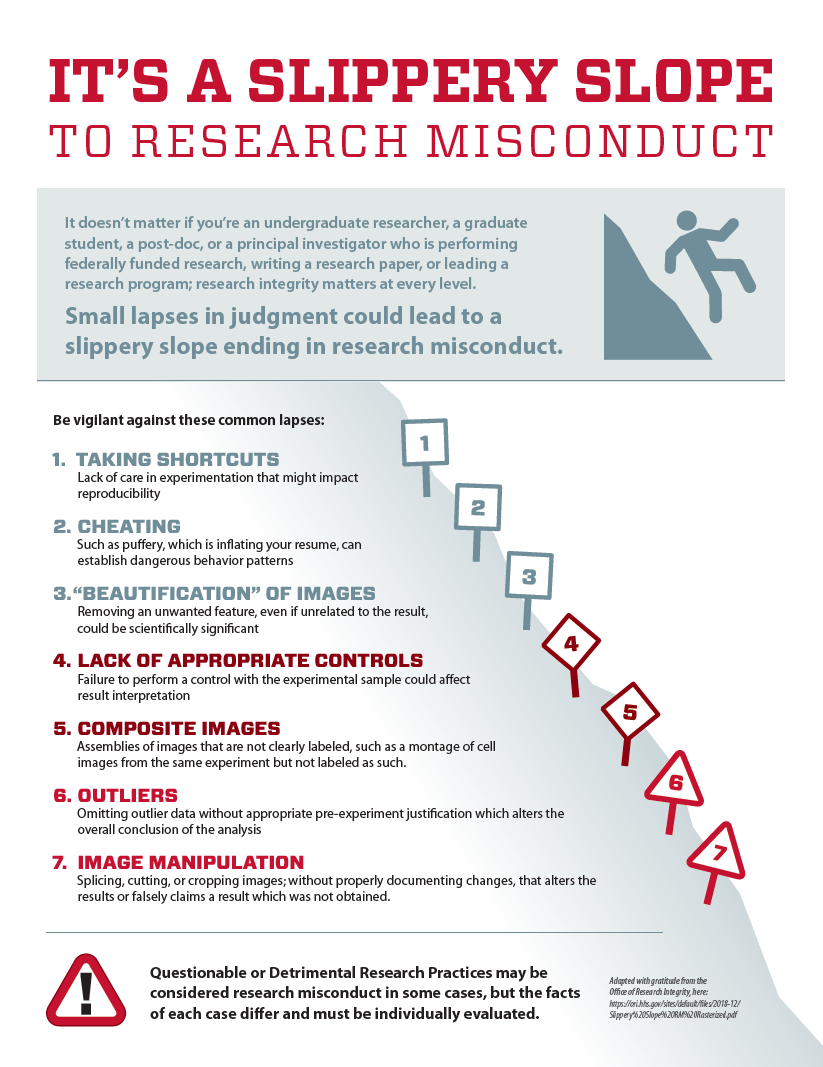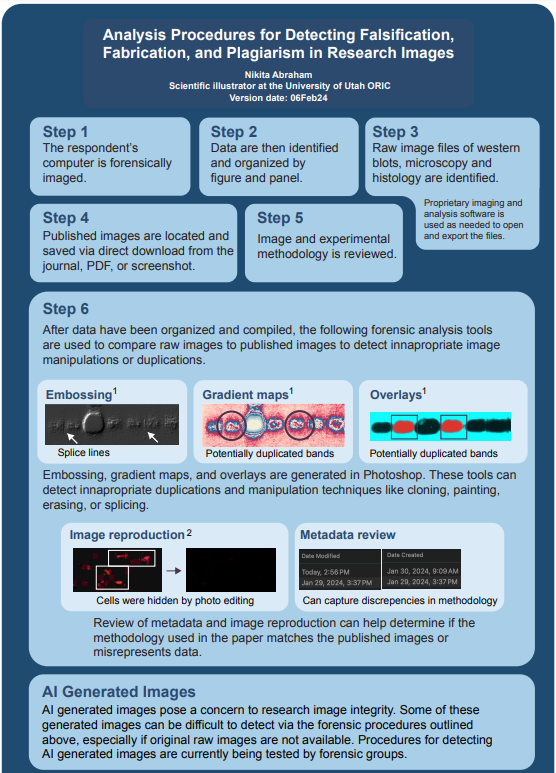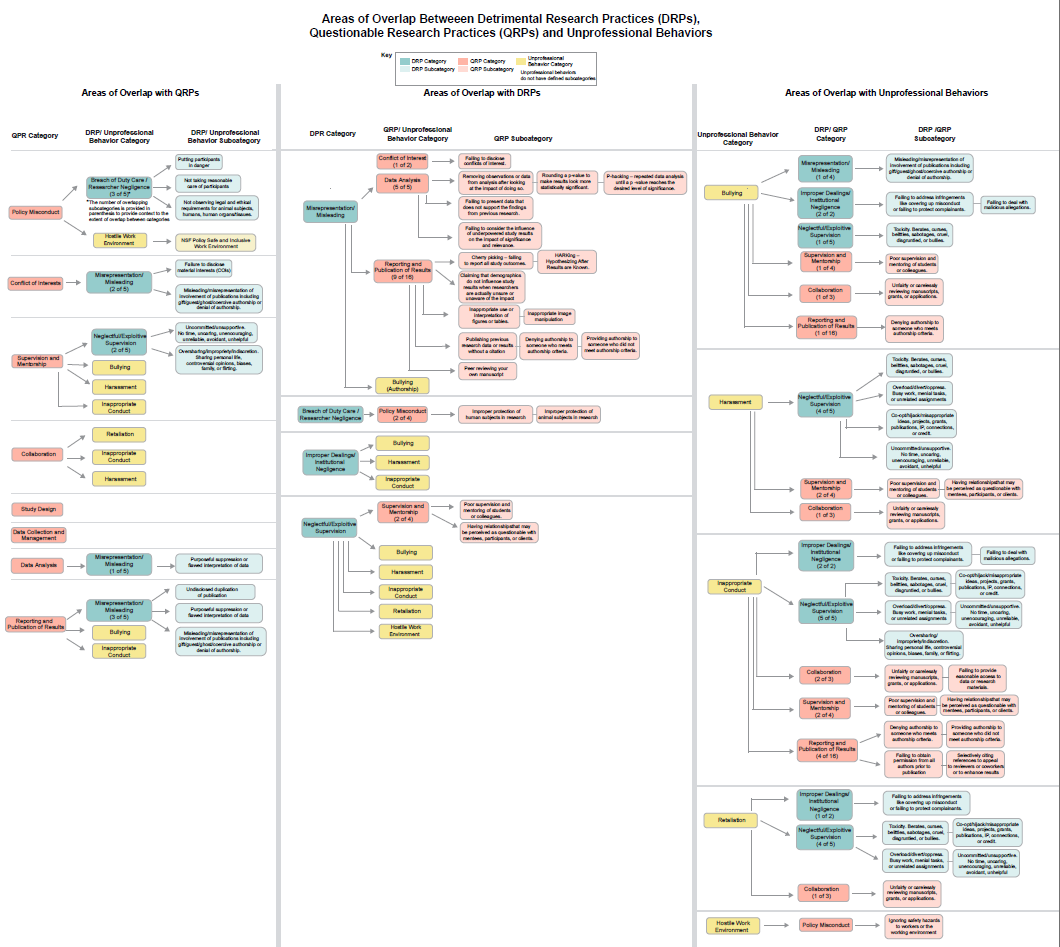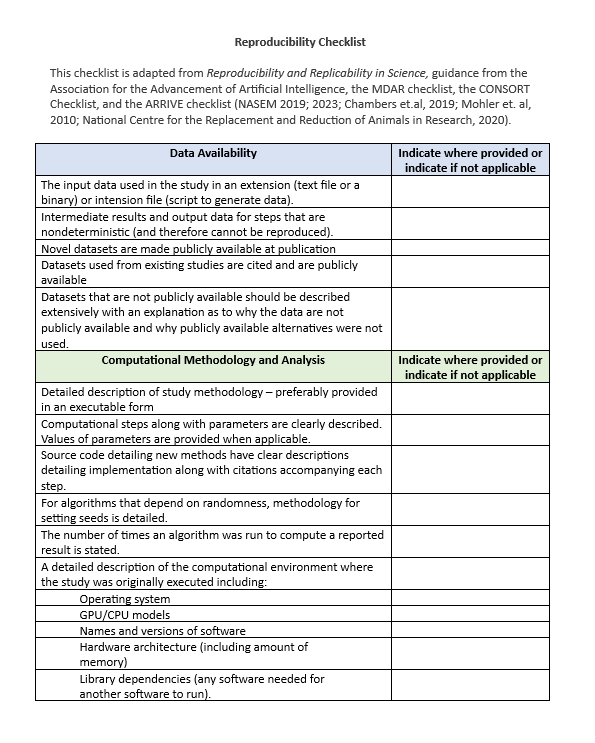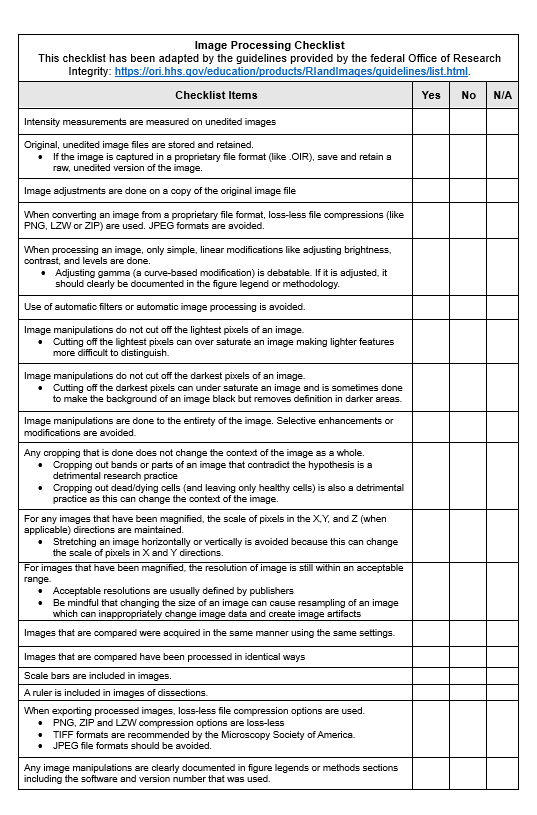Office of the
Research Integrity Officer (ORIO)
Our Mission
- Ensure integrity in the proposal, performance, review, and reporting of research activities.
- Promote the safe and respectful treatment of all individuals associated with University research activities and environments.
To Report
Research Misconduct
The ORIO has the expertise, responsibility, and authority to:
- Manage allegations of research misconduct and the process for addressing and resolving allegations (as defined in University Policy 7-001).
- Facilitate the resolution of complaints and concerns of unprofessional behavior occurring in the research environment through coordination with cognizant University leadership and administrative offices.
- Develop and advance University regulations related to all areas of research integrity.
- Design and implement education and training to:
- Promote ethical, responsible, and professional conduct of research, in addition to other critical topics related to research integrity and compliance.
- Prevent research misconduct, detrimental and questionable research practices (DRPs and QRPs).
- Examine the significance and application of appropriate image processing techniques.
Unprofessional Behavior
Unprofessional behaviors include bullying, harassment and other inappropriate conduct, retaliation, and the creation of a hostile work environment. For additional information, see the Unprofessional Behaviors section below.
What Research Misconduct is
Research misconduct is defined as the fabrication, falsification, and/or plagiarism that significantly deviates from the commonly accepted standards and practices within the relevant Research community for proposing, performing, reviewing, or reporting research.
What Research Misconduct is NOT
Research misconduct does not include honest error or honest difference in opinion, interpretations, or judgments of data.
Research misconduct does not just happen. It is a slippery slope of bad behaviors that can include both questionable scientific practices and interpersonal misbehaviors.
Examples of Bad Interpersonal Behaviors
- Inappropriate rudeness and disrespect
- Inappropriate flirting, touching, comments, questions, or jokes
- Inappropriate yelling or emotional outbursts, us of expletives, throwing objects, or banging/slamming doors
- Any form of physical intimidation or aggression (e.g., holding, restraining, impeding, or blocking movement, following, inappropriate contact or advances)
- Psychological bullying or intimidation, such as making statements that are false (spreading rumors), malicious, disparaging, or derogatory that hurt another’s reputation
- Belittling and/or mocking the thoughts, ideas, or feelings of others
- Ridiculing individuals for failures
- Exclusion or inequitable treatment based on sex, race, or ethnicity
- Associating gender, sex, or race with professional competencies or performance
- Retaliation against individual(s) for exercising the right to protect themselves or others from bullying, harassment, and other inappropriate behaviors
Research Misconduct Policy, Processes & Procedures
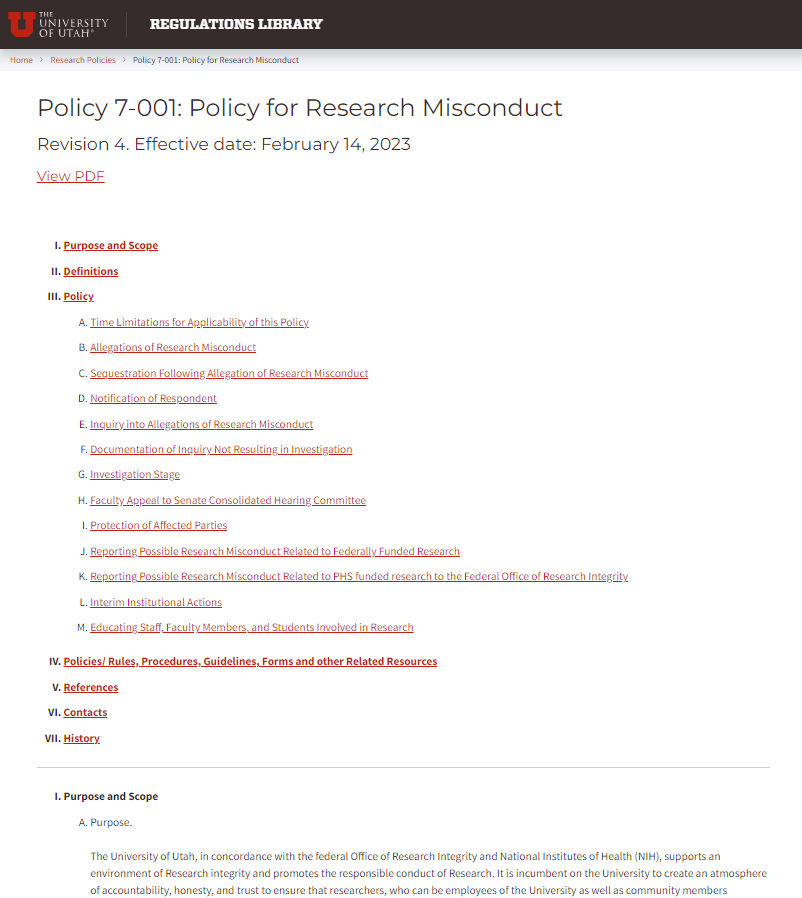
U of U Policy 7-001: Policy for Research Misconduct
(University regulation governing research misconduct definitions and processes)
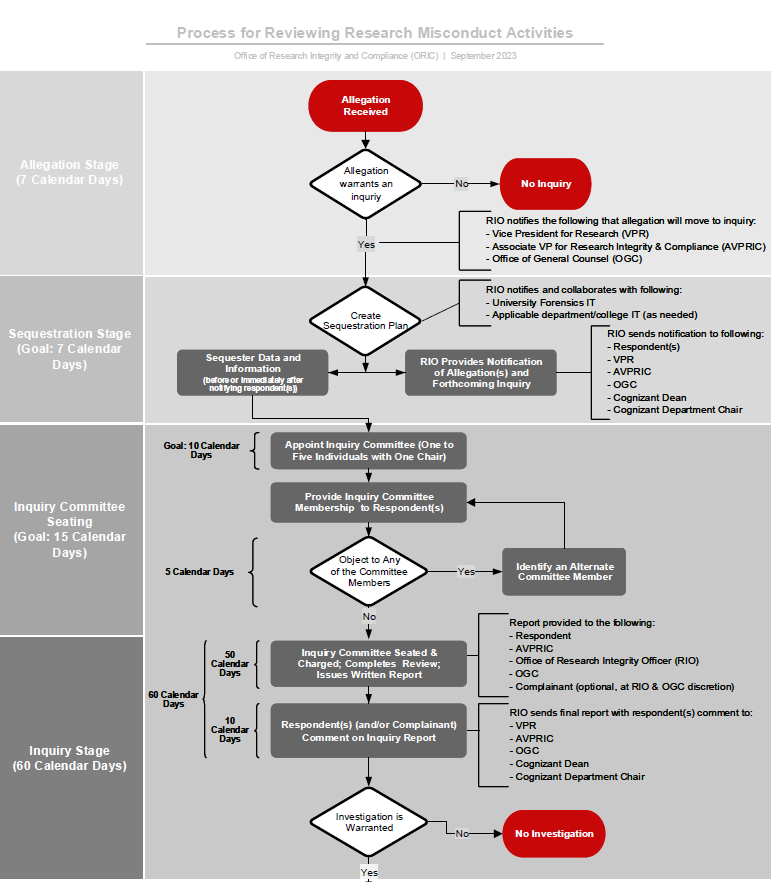
Research Misconduct Review Process and Activities
(Complete Version)
Coming Soon
Modal Heading
U of U Policy 7-001: Policy for Research Misconduct
(University regulation governing research misconduct definitions and processes)
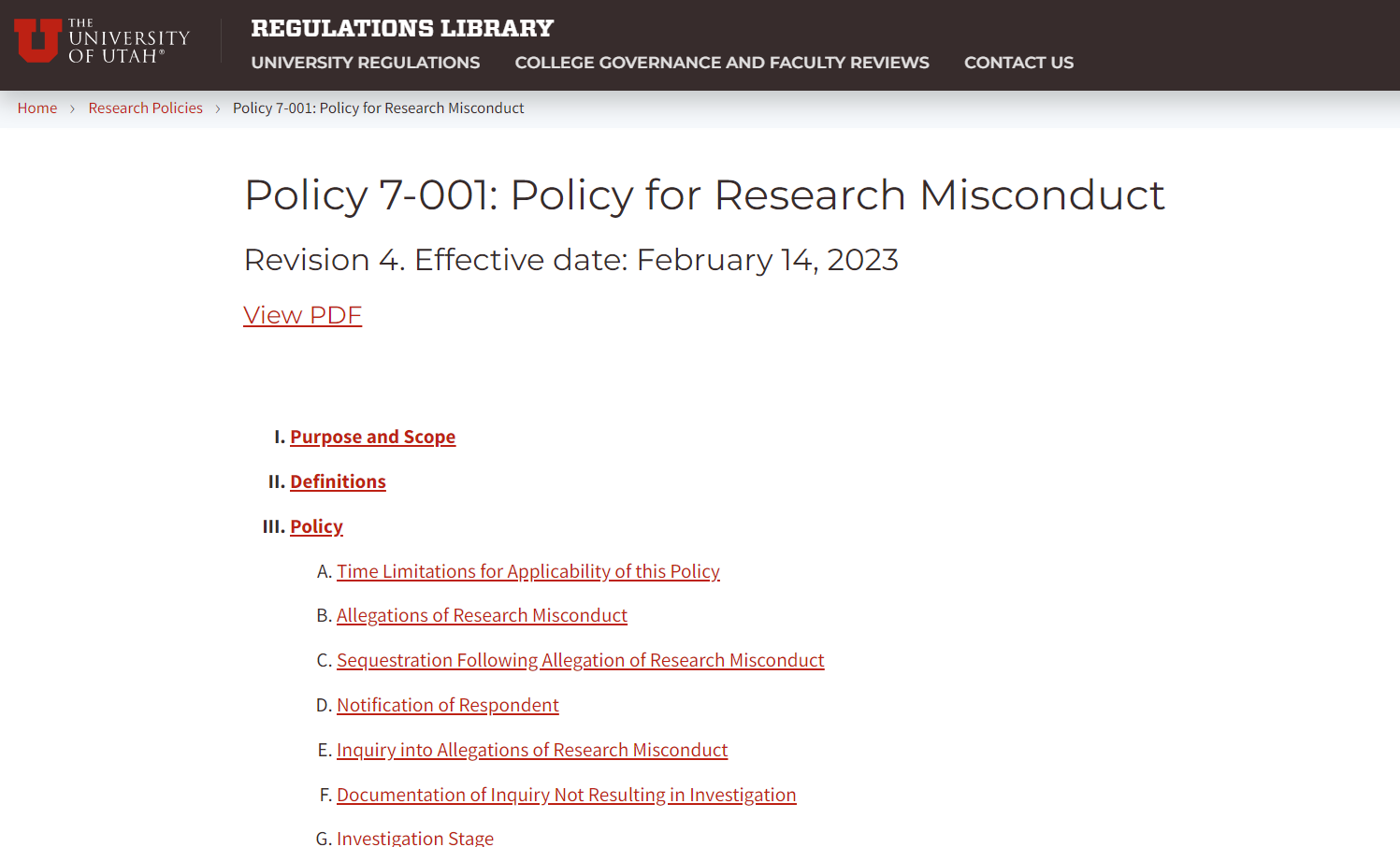
Research Misconduct Workflow
(Abbreviated Version)
Coming Soon
Falsification
“Falsification” means manipulating Research materials, equipment, or processes, or changing or omitting data or results such that the Research and/or its results are not accurately represented in the Research Record.
Fabrication
“Fabrication” means making up results and recording or reporting the fabricated results.
Plagiarism
“Plagiarism” means the appropriation of another person's ideas, processes, results, or words without giving appropriate credit and without specific approval, including those learned of through confidential review of others' Research proposals and manuscripts.
The University of Utah is committed to establishing a community and culture devoted to the highest standards of professional conduct. While the concept of ‘professionalism’ may vary across disciplines, an essential principle of every professional code includes treating others with respect, civility, and decency. This standard applies to all University employees and non-employees wherever University activity and business occurs, whether on or off campus, in person or through digital interactions.
The requirement to treat others appropriately applies to all research personnel and environments, without exception. University Researchers must abstain from the following forms of unprofessionalism.
Click tiles for definitions and information
University Policy, Processes, and Procedures
Coming Soon
The policies and award conditions of federal agencies and other funding entities require the University to report certain Unprofessional Behaviors. Conditions are described below:
Coming Soon
Coming Soon
Bullying
A pattern of repeated, or likely to be repeated, hostile behavior committed by one or more employees toward another that causes an imbalance between the perpetrator(s) and the target(s), which includes acts of workplace aggression and/or behaviors meant to dismiss others to increase one’s own standing. In bullying, there is always an actual or perceived power imbalance.
Bullying can be physical, verbal, and/or social. Examples include:
- Physical: pushing; aggressively entering another's personal space; blocking another’s path; stealing, hiding, or damaging another person's belongings; forcing someone to do things against his or her will
- Verbal: teasing; calling names; insulting another person; threatening another person with physical harm; spreading rumors or untrue statements about another person
- Social: refusing to talk to someone or making them feel left out; encouraging other individuals to bully someone.
Bullying can occur outside of official workplace or schedule. Cyberbullying is a growing concern with the increased use of mobile devices and communication apps, such as Slack or Teams.
Effects of bullying include, but are not limited to, stress, fear, depression/anxiety, self-blame, decreased morale and motivation, dysfunctional work environment, absenteeism, and negative impact on workplace reputation.
Harassment
As described for bullying, but when the perpetrator targets the action to an individual because of the individual’s membership in a “protected class” (e.g., sex or gender, race, ethnicity, national origin, religion, age, disability, etc.). Per University Rule 1-012, is “unwelcome or offensive conduct which has the purpose or effect of interfering with a person's work or academic environment or creating an intimidating, hostile, offensive, or otherwise adverse working or learning environment, when such conduct is based on or because of an individual's membership in a protected class described in Policy 1-012."
Examples of Harassment: NIH Forms of Harassment
Effects of harassment/discrimination include significant psychological trauma (e.g., anxiety, depression, withdrawal, anger, low self-esteem, inability to concentrate, fear), physiological harm (e.g., headaches, sleep disorders, panic attacks, weight changes, illnesses) and absenteeism.
Inappropriate Conduct
A broader category of misconduct included in the NIH Forms of Harassment (see item 7) that may not be harassment under the law (i.e., does not target a protected class) but raises concerns about a safe and respectful workplace. “Inappropriate conduct includes any comments or conduct that disparages or demonstrates hostility or aversion towards any person that could reasonably be perceived as disruptive, disrespectful, offensive, or inappropriate in the workplace. These may also be referred to as microaggressions.” Inappropriate conduct can occur through nuanced, subtle behaviors that may be difficult to identify, and in some cases may be unintentional. Regardless of the perpetrators intent or the ability to officially label the behavior, it is important that inappropriate conduct be addressed.
Examples are provided on inappropriate conduct are provided by the NIH.
Retaliation
The punishment, or threat of punishment, through intimidation, threatening, coercion or discrimination, of an employee by a supervisor for any real or perceived activity, which includes (but is not limited to) engaging in legally protected activity, such as making a good faith complaint of unprofessional behavior to human resources, the OEO, or other University office. Retaliation can include any punitive job action, such as demotion, discipline, firing, salary reduction, or reassignment of job duties.
Retaliation at the University of Utah is prohibited under Rule R1-012(ii)(T), Policy 1-021(III)(A)(4), and Policy 7-001.
Retaliation not only harms individual employees by instilling fear and decreasing morale, but it can also negatively impact overall employee morale due to the chilling effect that retaliation can have on other employees’ willingness to report concerns.
Abusive Conduct
Abusive Conduct means physical, verbal, or nonverbal conduct by an employee toward another employee (such as derogatory remarks, insults, or epithets) that based on the severity, nature, or frequency of the conduct, a reasonable person would determine any of the following:
- intends to intimidate, humiliate, or cause unwarranted distress;
- exploits an employee’s known physical or psychological disability; or
- is unwarranted and results in substantial physical or psychological harm as a result of intimidation, humiliation, or distress.”
The process for reporting and resolving abusive conduct varies depending on the classification of the responding employee. See Rules 1-021A (University Staff), 1-021B (UUHC Staff), and 1-021C (Faculty) for applicable reporting processes.
Creation of a Hostile Work Environment
Abusive Conduct means physical, verbal, or nonverbal conduct by an employee toward another employee (such as derogatory remarks, insults, or epithets) that based on the severity, nature, or frequency of the conduct, a reasonable person would determine any of the following:
- intends to intimidate, humiliate, or cause unwarranted distress;
- exploits an employee’s known physical or psychological disability; or
- is unwarranted and results in substantial physical or psychological harm as a result of intimidation, humiliation, or distress.”
The process for reporting and resolving abusive conduct varies depending on the classification of the responding employee. See Rules 1-021A (University Staff), 1-021B (UUHC Staff), and 1-021C (Faculty) for applicable reporting processes.
What are DRPs:
Detrimental Research Practices are harmful behaviors of questionable integrity that do not rise to the level of research misconduct but that compromise the positive climate, safety, compliance, and ethics of researchers at all levels.1
DRPs are often divided into three broad categories:
- Misrepresentation
- Breach of Duty Care/Researcher Negligence
- Neglectful or Exploitive Supervision (“Mentoring Malpractice”)
1Definition adopted with gratitude from Dr. James L. Mohler, Defining and Addressing Detrimental Research Practices(DRPs), August 2022 ARIO Conference presentation.
What are QRPs:
“Questionable research practices are actions that violate traditional values of the research enterprise and that may be detrimental to the research process…because they can erode confidence in the integrity of the research process, violate traditions associated with science, affect scientific conclusions, waste time and resources, and weaken the education of new scientists.”2
While QRPs may not directly damage the integrity of research processes or results, they create risk for non-compliance, violations of integrity, unprofessionalism, and research misconduct.
QRPs can include a wide and diverse range of behaviors, some of which overlap with types of DRPs and Unprofessional Behaviors. Seven categories of QRPs are provided below:
- Policy Misconduct
- Conflict of Interests
- Collaboration
- Study Design
- Data Collection and Management
- Data Analysis
- Reporting and Publication of Results
2Responsible Science : Ensuring the Integrity of the Research Process: Volume I, National Academies Press, 1992. ProQuest Ebook Central, http://ebookcentral.proquest.com/lib/utah/detail.action?docID=3376077.
What’s the Difference?
There are many similarities between DRP and QRP sub-categories. In fact, a detailed comparison of areas of overlap is provided below in the “SRP and QRP Guidance” section.
However, the primary difference between DRPs vs. QRPs is (1) intentionality and (2) direct harm. DRPs are more directly associated with actions that are (1) committed with knowledge or intent and (2) have a direct negative impact upon research personnel, activities, and outcomes.

DRP and QRP Guidance
Policy Misconduct
Represent violations of institutional or organizational policies (e.g., federal, state, local, industry) meant to ensure a safe working environment and protection of individuals participating in research. Examples include:
- Improper protection of human subjects in research1-4
- Improper use and storage of laboratory materials1,2,5
- Noncompliance with Environmental Health and Safety procedures1
References
- Bouter LM, Tijdink J, Axelsen N, Martinson BC, ter Riet G. Ranking major and minor research misbehaviors: results from a survey among participants of four World Conferences on Research Integrity. Research Integrity and Peer Review 2016;1(1):17. DOI: 10.1186/s41073-016-0024-5.
- Godecharle S, Fieuws S, Nemery B, Dierickx K. Scientists Still Behaving Badly? A Survey Within Industry and Universities. Science and Engineering Ethics 2018;24(6):1697-1717. DOI: 10.1007/s11948-017-9957-4.
- Martinson BC, Anderson MS, de Vries R. Scientists behaving badly. Nature 2005;435(7043):737-738. DOI: 10.1038/435737a.
- Sacco DF, Bruton SV, Brown M. In Defense of the Questionable: Defining the Basis of Research Scientists' Engagement in Questionable Research Practices. J Empir Res Hum Res Ethics 2018;13(1):101-110. (In eng). DOI: 10.1177/1556264617743834.
- Gopalakrishna G, ter Riet G, Vink G, Stoop I, Wicherts JM, Bouter LM. Prevalence of questionable research practices, research misconduct and their potential explanatory factors: A survey among academic researchers in The Netherlands. PLOS ONE 2022;17(2):e0263023. DOI: 10.1371/journal.pone.0263023.
Conflict of Interests
Failure to acknowledge the existence and/or influence of an individual’s personal interests – financial, professional, or social – that have the potential to compromise an ability to act with integrity. Examples include:
- Failing to disclose a sponsor or a conflict of interest 1-5
- Failing to disclose a sponsors’ involvement in data analysis or manuscript preparation5
- Changing the study design or manuscript in response to pressure from a funding source1-3,5
References
- Bouter LM, Tijdink J, Axelsen N, Martinson BC, ter Riet G. Ranking major and minor research misbehaviors: results from a survey among participants of four World Conferences on Research Integrity. Research Integrity and Peer Review 2016;1(1):17. DOI: 10.1186/s41073-016-0024-5.
- Godecharle S, Fieuws S, Nemery B, Dierickx K. Scientists Still Behaving Badly? A Survey Within Industry and Universities. Science and Engineering Ethics 2018;24(6):1697-1717. DOI: 10.1007/s11948-017-9957-4.
- Martinson BC, Anderson MS, de Vries R. Scientists behaving badly. Nature 2005;435(7043):737-738. DOI: 10.1038/435737a.
- Ravn T, Sørensen MP. Exploring the Gray Area: Similarities and Differences in Questionable Research Practices (QRPs) Across Main Areas of Research. Science and Engineering Ethics 2021;27(4):40. DOI: 10.1007/s11948-021-00310-z.
- Sacco DF, Bruton SV, Brown M. In Defense of the Questionable: Defining the Basis of Research Scientists' Engagement in Questionable Research Practices. J Empir Res Hum Res Ethics 2018;13(1):101-110. (In eng). DOI: 10.1177/1556264617743834.
Study Design
Incomplete and/or flawed development of a research idea. Examples include:
- Lack of clear study question and/or hypotheses 1
- Lack of appropriate preparation prior to study initiation1
- Inadequate or inappropriate use of methodology or measurement instruments1-3
- Lack of appropriate controls1,4
- Failing to utilize randomization or blinding whenever possible4
References
- Ravn T, Sørensen MP. Exploring the Gray Area: Similarities and Differences in Questionable Research Practices (QRPs) Across Main Areas of Research. Science and Engineering Ethics 2021;27(4):40. DOI: 10.1007/s11948-021-00310-z.
- Bouter LM, Tijdink J, Axelsen N, Martinson BC, ter Riet G. Ranking major and minor research misbehaviors: results from a survey among participants of four World Conferences on Research Integrity. Research Integrity and Peer Review 2016;1(1):17. DOI: 10.1186/s41073-016-0024-5.
- Gopalakrishna G, ter Riet G, Vink G, Stoop I, Wicherts JM, Bouter LM. Prevalence of questionable research practices, research misconduct and their potential explanatory factors: A survey among academic researchers in The Netherlands. PLOS ONE 2022;17(2):e0263023. DOI: 10.1371/journal.pone.0263023.
- Suter WN. Questionable Research Practices: How to Recognize and Avoid Them. Home Health Care Management & Practice 2020;32(4):183-190. DOI: 10.1177/1084822320934468.
Collaboration
Failure to perform an obligation, either explicit or implied, that is owed to another individual or group, and/or ignoring research wrongdoing in others. Examples include:
- Ineffective communication
- Overlooking questionable or detrimental research practices in colleagues1-4
- Failing to provide reasonable access to data or research materials4,5
- Unfairly or carelessly reviewing manuscripts, grants, or applications1,2,4,6
References
- Bouter LM, Tijdink J, Axelsen N, Martinson BC, ter Riet G. Ranking major and minor research misbehaviors: results from a survey among participants of four World Conferences on Research Integrity. Research Integrity and Peer Review 2016;1(1):17. DOI: 10.1186/s41073-016-0024-5.
- Godecharle S, Fieuws S, Nemery B, Dierickx K. Scientists Still Behaving Badly? A Survey Within Industry and Universities. Science and Engineering Ethics 2018;24(6):1697-1717. DOI: 10.1007/s11948-017-9957-4.
- Martinson BC, Anderson MS, de Vries R. Scientists behaving badly. Nature 2005;435(7043):737-738. DOI: 10.1038/435737a.
- Sacco DF, Bruton SV, Brown M. In Defense of the Questionable: Defining the Basis of Research Scientists' Engagement in Questionable Research Practices. J Empir Res Hum Res Ethics 2018;13(1):101-110. (In eng). DOI: 10.1177/1556264617743834.
- National Academies of Sciences E, Medicine . Committee on Responsible S, Committee on Science E, Public P. Fostering integrity in research: Washington, District of Columbia : The National Academies Press, 2017.
- Gopalakrishna G, ter Riet G, Vink G, Stoop I, Wicherts JM, Bouter LM. Prevalence of questionable research practices, research misconduct and their potential explanatory factors: A survey among academic researchers in The Netherlands. PLOS ONE 2022;17(2):e0263023. DOI: 10.1371/journal.pone.0263023.
Data Collection and Management
Collecting or managing data that deviates from sound scientific principles, institutional policies, standard operating principles, or study-specific protocols.
Data Collection
- Inappropriately adding observations to inflate the sample size 1-4
- Stopping collection earlier without sufficient reason1-4
- Inappropriate sampling or interpretation of samples. Failing to consider the impact of underpowered data, overgeneralizing data, or non-representative sampling3,5
Data Management
- Improper record keeping or data management 1,4-8
- Lack of appropriate quality assurance or control1
- Improperly de-identifying data or improper use of confidential data7
- Improper record retention9
References
- Bouter LM, Tijdink J, Axelsen N, Martinson BC, ter Riet G. Ranking major and minor research misbehaviors: results from a survey among participants of four World Conferences on Research Integrity. Research Integrity and Peer Review 2016;1(1):17. DOI: 10.1186/s41073-016-0024-5.
- John LK, Loewenstein G, Prelec D. Measuring the prevalence of questionable research practices with incentives for truth telling. Psychol Sci 2012;23(5):524-32. (In eng). DOI: 10.1177/0956797611430953.
- Sacco DF, Bruton SV, Brown M. In Defense of the Questionable: Defining the Basis of Research Scientists' Engagement in Questionable Research Practices. J Empir Res Hum Res Ethics 2018;13(1):101-110. (In eng). DOI: 10.1177/1556264617743834.
- Suter WN. Questionable Research Practices: How to Recognize and Avoid Them. Home Health Care Management & Practice 2020;32(4):183-190. DOI: 10.1177/1084822320934468.
- Ravn T, Sørensen MP. Exploring the Gray Area: Similarities and Differences in Questionable Research Practices (QRPs) Across Main Areas of Research. Science and Engineering Ethics 2021;27(4):40. DOI: 10.1007/s11948-021-00310-z.
- Godecharle S, Fieuws S, Nemery B, Dierickx K. Scientists Still Behaving Badly? A Survey Within Industry and Universities. Science and Engineering Ethics 2018;24(6):1697-1717. DOI: 10.1007/s11948-017-9957-4.
- Martinson BC, Anderson MS, de Vries R. Scientists behaving badly. Nature 2005;435(7043):737-738. DOI: 10.1038/435737a.
- Gopalakrishna G, ter Riet G, Vink G, Stoop I, Wicherts JM, Bouter LM. Prevalence of questionable research practices, research misconduct and their potential explanatory factors: A survey among academic researchers in The Netherlands. PLOS ONE 2022;17(2):e0263023. DOI: 10.1371/journal.pone.0263023.
- National Academies of Sciences E, Medicine . Committee on Responsible S, Committee on Science E, Public P. Fostering integrity in research. Washington, District of Columbia : The National Academies Press. (https://nap.nationalacademies.org/catalog/21896/fostering-integrity-in-research).
Data Analysis
Any practice that distorts and misrepresents the meaning or significance of the data, including:
- Removing observations or data from analysis after looking at the impact of doing so1-3
- Failing to present data that does not support the findings from previous research4,5
- Rounding a p-value to make results look more statistically significant1-4
- P-hacking – repeated data analysis until a p -value reaches the desired level of significance3,4,6
References:
- John LK, Loewenstein G, Prelec D. Measuring the prevalence of questionable research practices with incentives for truth telling. Psychol Sci 2012;23(5):524-32. (In eng). DOI: 10.1177/0956797611430953.
- Sacco DF, Bruton SV, Brown M. In Defense of the Questionable: Defining the Basis of Research Scientists' Engagement in Questionable Research Practices. J Empir Res Hum Res Ethics 2018;13(1):101-110. (In eng). DOI: 10.1177/1556264617743834.
- Suter WN. Questionable Research Practices: How to Recognize and Avoid Them. Home Health Care Management & Practice 2020;32(4):183-190. DOI: 10.1177/1084822320934468.
- Bouter LM, Tijdink J, Axelsen N, Martinson BC, ter Riet G. Ranking major and minor research misbehaviors: results from a survey among participants of four World Conferences on Research Integrity. Research Integrity and Peer Review 2016;1(1):17. DOI: 10.1186/s41073-016-0024-5.
- Godecharle S, Fieuws S, Nemery B, Dierickx K. Scientists Still Behaving Badly? A Survey Within Industry and Universities. Science and Engineering Ethics 2018;24(6):1697-1717. DOI: 10.1007/s11948-017-9957-4.
- Ravn T, Sørensen MP. Exploring the Gray Area: Similarities and Differences in Questionable Research Practices (QRPs) Across Main Areas of Research. Science and Engineering Ethics 2021;27(4):40. DOI: 10.1007/s11948-021-00310-z.
Reporting and Publication of Results
Misrepresentations and omissions in the reported/published results that distort research activities and contributions, such as:
Reporting Results
- Failing to report methodology or study design1-6
- Concealing data or results by cherry picking, failing to report all study outcomes, or removing data/results that contradicts previous results 1-5,7,8
- Hypothesizing after results are known (HARKing) or reporting findings as if they had been hypothesized from the beginning of a project1,4,5,7,8
- Claiming that demographics variables do not influence study results when the impact of these variables on results have not been assessed7
- Inappropriate use or interpretation of figures or tables4
- Inappropriate image manipulation
- Failing to discuss or present study limitations1,6,8
- Failing to submit null results for publication1,4,6
Citations
- Failing to cite an individual whose ideas/data were used1-5
- Publishing previous research data or results without a citation1-5
- Selectively citing references1,4-7
Authorship
- Denying authorship to someone who meets authorship criteria1-5,9
- Providing authorship to someone who did not meet authorship criteria1-5,9
- Failing to obtain permission from all authors prior to publication1,5
References
- Bouter LM, Tijdink J, Axelsen N, Martinson BC, ter Riet G. Ranking major and minor research misbehaviors: results from a survey among participants of four World Conferences on Research Integrity. Research Integrity and Peer Review 2016;1(1):17. DOI: 10.1186/s41073-016-0024-5.
- Godecharle S, Fieuws S, Nemery B, Dierickx K. Scientists Still Behaving Badly? A Survey Within Industry and Universities. Science and Engineering Ethics 2018;24(6):1697-1717. DOI: 10.1007/s11948-017-9957-4.
- Martinson BC, Anderson MS, de Vries R. Scientists behaving badly. Nature 2005;435(7043):737-738. DOI: 10.1038/435737a.
- Ravn T, Sørensen MP. Exploring the Gray Area: Similarities and Differences in Questionable Research Practices (QRPs) Across Main Areas of Research. Science and Engineering Ethics 2021;27(4):40. DOI: 10.1007/s11948-021-00310-z.
- Sacco DF, Bruton SV, Brown M. In Defense of the Questionable: Defining the Basis of Research Scientists' Engagement in Questionable Research Practices. J Empir Res Hum Res Ethics 2018;13(1):101-110. (In eng). DOI: 10.1177/1556264617743834.
- Gopalakrishna G, ter Riet G, Vink G, Stoop I, Wicherts JM, Bouter LM. Prevalence of questionable research practices, research misconduct and their potential explanatory factors: A survey among academic researchers in The Netherlands. PLOS ONE 2022;17(2):e0263023. DOI: 10.1371/journal.pone.0263023.
- John LK, Loewenstein G, Prelec D. Measuring the prevalence of questionable research practices with incentives for truth telling. Psychol Sci 2012;23(5):524-32. (In eng). DOI: 10.1177/0956797611430953.
- Suter WN. Questionable Research Practices: How to Recognize and Avoid Them. Home Health Care Management & Practice 2020;32(4):183-190. DOI: 10.1177/1084822320934468.
- National Academies of Sciences E, Medicine . Committee on Responsible S, Committee on Science E, Public P. Fostering integrity in research: Washington, District of Columbia : The National Academies Press, 2017.
Misrepresentation
Describes any practice that inaccurately represent the research processes, results, or contributions of individuals. Examples include:
- Mischaracterization of data by purposeful suppression or flawed interpretation
- Undisclosed duplication of publication
- Failure to declare material interests (COIs)
- Misrepresentation of qualifications, experience, or positions
- Mischaracterization of involvement in publications, such as
- Gift, guest, ghost or coercive authorship
- Denial of authorship (overt or by exclusion)
- Concept of right of first refusal
Definitions adopted with gratitude from Dr. James L. Mohler, Defining and Addressing Detrimental Research Practices(DRPs), August 2022 ARIO Conference; derived from 2013 RCUK Policy and Guidelines on Governance of Good Research Conduct
Breach of Duty Care/Researcher Negligence
Represent violations of the trust and confidence that individuals and society have in the research enterprise and individual scientists to behave ethically and with integrity. The examples below highlight violations of the commitment to protect privacy and confidentiality (including between colleagues), minimize harms, and maximize benefits:
- Disclosing the identity of research participants
- Putting research participants at increased risk or danger without IRB review/approval and participant consent
- Failure to take reasonable care of participants, including an inadequate informed consent process
- Noncompliance with legal and ethical requirements and standards surrounding human subjects, animal subjects, and handling of biological specimens
- Improper conduct during peer review
Definition adopted with gratitude from Dr. James L. Mohler, Defining and Addressing Detrimental Research Practices(DRPs), August 2022 ARIO Conference; derived from 2013 RCUK Policy and Guidelines on Governance of Good Research Conduct
Neglectful or Exploitive Supervision (“Mentoring Malpractice”)
Characterizes a variety of harmful practices that occur within the context of a Mentor/Mentee or Supervisor/Subordinate relationship, including:
- Co-opt/Hijack/Misappropriate
- Ideas, projects, grants, publications, intellectual property, connections, credit
- Overload/Divert/Oppress
- Busy work, menial tasks, unrelated assignments
- Oversharing/Impropriety/Indiscretion
- Personal life, controversial opinions/topics, biases, family, flirting/coquetry
- Uncommitted/Unsupportive
- No time, uncaring, unencouraging, unreliable, avoidant, unhelpful
- Toxicity
- Berates, curses, belittles, sabotages, cruel, disgruntled, bullying
Definition adopted with gratitude from Dr. James L. Mohler, Defining and Addressing Detrimental Research Practices(DRPs), August 2022 ARIO Conference; derived from Chopra V, Edelson DP, Saint S. Mentorship Malpractice. JAMA. 2016;315(14):1453–1454. doi:10.1001/jama.2015.18884.
Research images are a distinct type of scientific data that are crucial for the visualization and communication of scientific results. As a type of research data, it is essential that researchers follow integrity principles and apply standards for scientific rigor in the acquisition, preparation, and publication of images. Image processing techniques that result in images that misrepresent the research activities and results pose a serious risk to scientific integrity, reproducibility and replicability, and may even be considered research misconduct.
The guidance below outlines best practices for image processing that align with standards for research rigor and reproducibility, preserve image data, promote transparency, and ensure integrity.
10 Dos and Don'ts of Processing Images
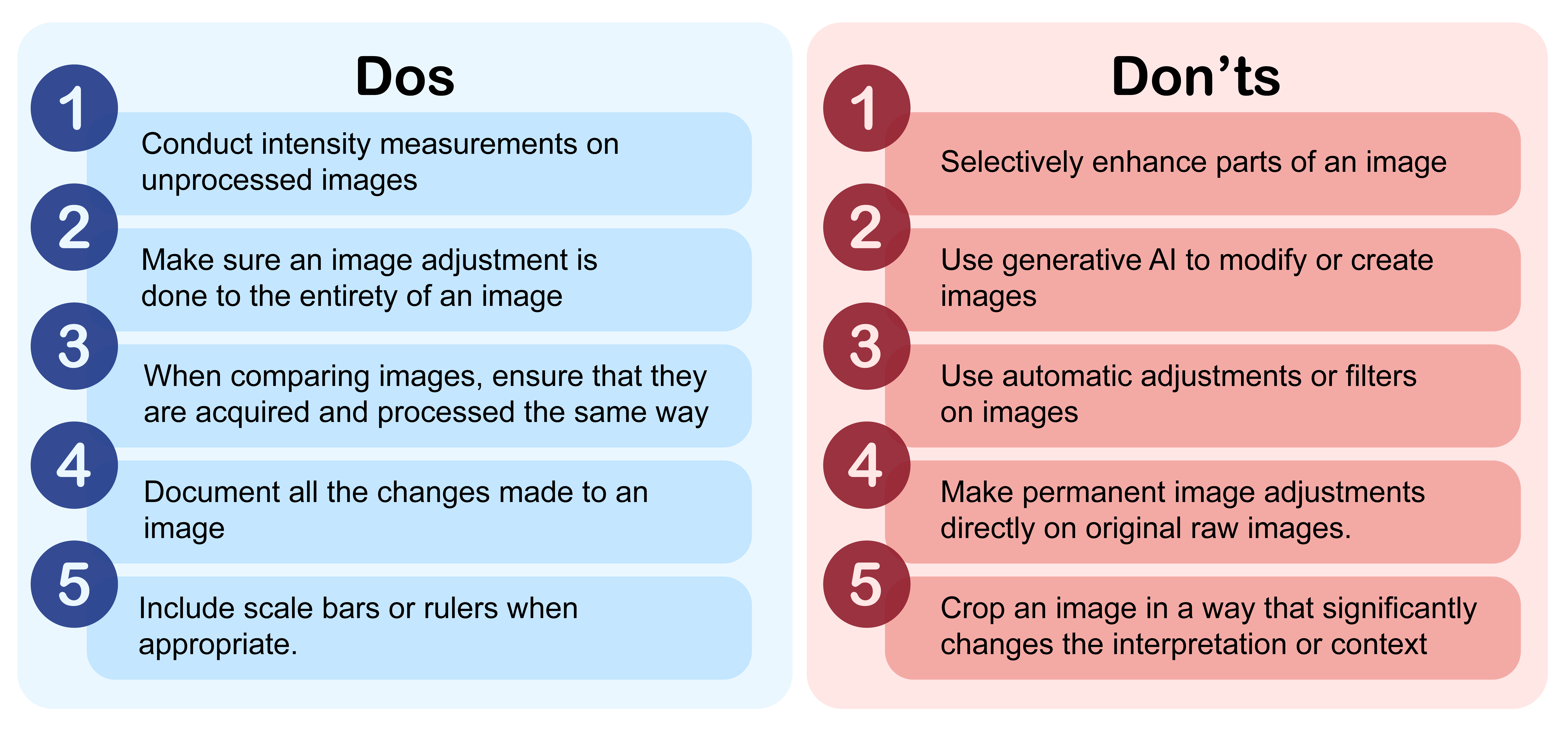
Frequently Asked Questions: Research Images
If you are submitting figures for review in a journal, follow the guidelines provided by the journal. In general, avoid JPEG images as they use an image compression that can lead to image degradation and the creation of artifacts. PNG and TIFF images are usually the highest quality image exports. When exporting an image, be sure to use a lossless compression option like LZW or ZIP and use a high enough resolution (above 300 dpi is a good rule of thumb). Always retain an original copy of the unedited image in whatever proprietary format it was acquired in.
Simple adjustments like changing the brightness, contrast, or RGB levels are acceptable adjustments. These adjustments must be done to the entirety of the image. Images that are being compared should be processed in the same exact way.
Cropping is an acceptable image adjustment given that it does not change the context or the interpretation of the image.
When making image adjustments, be sure to clearly document what was done to the images in figure legends or methodology.
Selective enhancements, cloning objects, and splicing images are practices to avoid.
- Selective enhancements are adjustments done to a specific area of an image, including ‘cleaning up’ the background of an image.
- Object cloning is a type of selective enhancement and duplication that replicates part of an image.
- Splicing images is combining two images and passing it off as one image. Splicing is commonly seen in western blots.
Other questionable practices include making contrast, brightness, color adjustments, or cropping an image in a way that changes the interpretation of an image. For example, changing the brightness of a western blot in a way that causes lighter bands to become invisible to the naked eye.
Commonly used software for image processing are ImageJ/Fiji and Photoshop; however, researchers are not limited to using these programs. Regardless of what program is used, the software name and version number, along with documentation of the specific image adjustments, should be noted in the methodology section or figure legend.
Please refer to the guidance provided by the federal Office of Research Integrity. The University of Utah Research Education also hosts a course on appropriate image processing in research.
Resources
Reporting, Questions, or Concerns?
Research Integrity Officer
Zachary Mitchell
801-585-1383
zachary.mitchell@hsc.utah.edu
researchintegrity@utah.edu

Forensics Illustrator
Nikita Abraham
801-581-5306
nikita.abraham@hsc.utah.edu
Image processing inquiries, research visualization and figure generation assistance,
and Adobe Illustrator, Photoshop, or Acrobat support.

Anonymous Reporting
-
Under "Organization Name" type "University of Utah"
-
Select the "University of Utah" radio button
-
Click "Select Company/Institution"
-
Review categories for reporting; for research misconduct, unprofessionalism in a research environment, and other detrimental research practices, select: "Research"
-
Choose the arrow next to the sub-category describing the concern/issue
-
Provide required and requested information (if applicable)
-
Click "Submit Report"
Responsible Conduct of Research Courses
from University of Utah Research Education
register here
In this class we will review how image forensic techniques like embossing, gradient maps, and overlays are used to detect inappropriate manipulations in research images.
Upcoming Session: Tuesday, April 22, 10-11 am via Zoom.
ENROLL FOR RED 305
In this class we will review appropriate image manipulation techniques when preparing research graphics for publications, grants, and presentations.
Class Objectives:
- Identify inappropriate image manipulations in research
- Describe appropriate image manipulation techniques
- Recognize the importance of appropriate image manipulation techniques in promoting scientific rigor
ENROLL FOR RED 367
The University of Utah is committed to establishing a community and culture devoted to the highest standards of professional conduct. While the concept of ‘professionalism’ varies across disciplines, an essential principle of every professional code includes treating others with respect, civility, and decency.
This class will explore the federal, Institutional, and research industry landscape of (un)professional behavior in the research context. Through a focused presentation of relevant topics, paired with case study discussions with subject matter experts, attendees will acquire a clear understanding of professional behavior in the research context, consequences for unprofessional conduct, and an appreciation for the impact that (un)professionalism has on the quality of research processes and results.
ENROLL for red 730
Even though scientific research itself is hundreds, perhaps even thousands, of years old, the area of responsible conduct of research (RCR) is relatively new. The discussions around RCR emphasize the nuanced and multidisciplinary social and ethical issues that arise when conducting scientific research. This asynchronous (completely online) class will increase researchers’, scholars’, and research administrators’ awareness about the need for responsible conduct of research (RCR). The class will highlight strategies to promote research integrity so that the unacceptable research practices as well as research misconduct are prevented. The RCR class meets the requirements NIH- and NSF-funded research (adapted from the Milken School)
At the conclusion of this class, you should be able to:
- Characterize elements of responsible conduct of research (RCR)
- Describe areas of research misconduct
- Differentiate activities that promote responsible conduct of research (RCR) in your discipline
- Identify federal and university resources that deal with research misconduct
ENROLL for red 731
The responsible conduct of research (RCR) is a relatively new discipline. It is focused on the multifaceted social and ethical issues that arise in the practice of scientific research. But scientific research itself is hundreds, perhaps even thousands, of years old. Reflecting on this history of biology, chemistry, physics and medicine provides insightful examples of both responsibly conducted research, and irresponsibly conducted research, by some of the most famous scientists in history.
Participants will examine a number of notable cases from the history of science and will consider how prominent scientists and their research would fare in the modern age of RCR.

